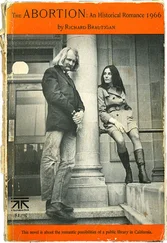Richard Dowling - The Last Call - A Romance (Vol. 1 of 3)
Здесь есть возможность читать онлайн «Richard Dowling - The Last Call - A Romance (Vol. 1 of 3)» — ознакомительный отрывок электронной книги совершенно бесплатно, а после прочтения отрывка купить полную версию. В некоторых случаях можно слушать аудио, скачать через торрент в формате fb2 и присутствует краткое содержание. Жанр: foreign_prose, на английском языке. Описание произведения, (предисловие) а так же отзывы посетителей доступны на портале библиотеки ЛибКат.
- Название:The Last Call: A Romance (Vol. 1 of 3)
- Автор:
- Жанр:
- Год:неизвестен
- ISBN:нет данных
- Рейтинг книги:4 / 5. Голосов: 1
-
Избранное:Добавить в избранное
- Отзывы:
-
Ваша оценка:
- 80
- 1
- 2
- 3
- 4
- 5
The Last Call: A Romance (Vol. 1 of 3): краткое содержание, описание и аннотация
Предлагаем к чтению аннотацию, описание, краткое содержание или предисловие (зависит от того, что написал сам автор книги «The Last Call: A Romance (Vol. 1 of 3)»). Если вы не нашли необходимую информацию о книге — напишите в комментариях, мы постараемся отыскать её.
The Last Call: A Romance (Vol. 1 of 3) — читать онлайн ознакомительный отрывок
Ниже представлен текст книги, разбитый по страницам. Система сохранения места последней прочитанной страницы, позволяет с удобством читать онлайн бесплатно книгу «The Last Call: A Romance (Vol. 1 of 3)», без необходимости каждый раз заново искать на чём Вы остановились. Поставьте закладку, и сможете в любой момент перейти на страницу, на которой закончили чтение.
Интервал:
Закладка:
Dowling Richard
The Last Call: A Romance (Vol. 1 of 3)
Part I.
THE LAST CALL
CHAPTER I
The sun was low behind a bank of leaden cloud which stood like a wall upon the western horizon. In front of a horse-shoe cove lay a placid bay, and to the westward, but invisible from the cove, the plains of the Atlantic. It was low water, and summer. The air of the cove was soft with exhalations from the weed-clad rocks stretching in green and brown furrows from the ridge of blue shingle in the cove to the violet levels of the sea. On the ridge of shingle lay a young man, whose eyes rested on the sea. He was of the middle height and figure. Twenty-seven or twenty-eight seemed to be his age. He had a neat, compact forehead, dark gray eyes, ruddy, full cheeks, a prominent nose, full lips, and a square chin. The face looked honest, good-humoured, manly. The moustaches were brown; the brown hair curled under the hat. The young man wore a gray tweed suit and a straw hat. He lay resting on his elbow. In the line of his sight far out in the bay a small dot moved almost imperceptibly. The lounger knew this dot was a boat: distance prevented his seeing it contained a man and a woman. Dominique Lavirotte, the man in the boat, was of the middle height and figure, twenty-four years of age, looking like a Greek, but French by descent and birth. The eyes and skin were dark, the beard and moustaches black. The men of Rathclare, a town ten miles off, declared he was the handsomest man they had ever seen, and yet felt their candour ill-requited when their sweethearts and wives concurred. With Dominique Lavirotte in the boat was Ellen Creagh. She was not a native of Rathclare, but of Glengowra, the small seaside and fishing town situate on Glengowra Bay, over which the boat was now lazily gliding in the cool blue light of the afternoon. Ellen Creagh was tall and slender, above the average height of women, and very fair. She had light golden-brown hair, bright lustrous blue eyes, and lips of delicate red. The upper lip was short. Even in repose her face always suggested a smile. One of the great charms of the head was the fluent ease with which it moved. The greatest charm of the face was the sweet susceptibility it had to smile. It seemed, when unmoved, to wait in placid faith, the advent of pleasant things. During its moments of quiet there was no suggestion of doubt or anxiety in it. To it the world was fair and pleasant-and the face was pleasant and wonderfully fair. Pleasant people are less degraded by affectation than solemn people. Your solemn man is generally a swindler of some kind, and nearly always selfish and insincere. Ellen Creagh looked the embodiment of good-humoured candour, and the ideal of health and beauty. She was as blithe and wholesome as the end of May; she was a northern Hebe, a goddess of youth and joy. The name of the young man lying on the shingles was Eugene O'Donnell. He lived in the important seaport of Rathclare, where his father was the richest and most respected merchant and shipowner. There had James O'Donnell been established in business for many years, and they now said he was not worth less than a quarter of a million sterling. Mrs. O'Donnell was a hale, brisk, bright-minded woman of fifty-seven, being three years her husband's junior. The pair had but one child, Eugene, and to him in due time all the old man's money was to go. The O'Donnells were wealthy and popular. The father had a slow, methodical way, which did not win upon strangers, but among those who knew him no one was more highly respected. Without any trace of extravagance, James O'Donnell was liberal with his money. He was a good husband, a good father, and a good employer. He had only one source of permanent uneasiness-his son Eugene was not married, and showed no inclination towards marriage. The old man held that every young man who could support a wife should take one. He himself had married young, had prospered amazingly, and never for a moment regretted his marriage. He was prepared to give his son a share in his business, and a thousand a year out of the interest of his savings, if the young man would only settle. But although Eugene O'Donnell was as good-humoured and good-hearted a young fellow as the town of Rathclare, or the next town to it, could show, and although there was not in the whole town one girl who would be likely to refuse him, and although there were plenty of handsome girls in Rathclare, Eugene O'Donnell remained obdurate. It was lamentable, but what could anyone do? The young man would not make love, the father would not insist upon his marrying whether he loved or no, and there being at Rathclare little faith in leap-year, no widow or maiden of the town was bold enough to ask him to wed her. While the young man lying on the shingle was idly watching the boat, the young man in the boat was by no means idle. The sculls he was pulling occupied none of his attention. He swung himself mechanically backward and forward. His whole mind was fixed on the face and form of the girl sitting in the stern. "And so, you really must go back to Dublin?" he said ruefully. "Yes," she answered with a smile. "I must really go back to Dublin within a fortnight." "And leave all here behind," he said tenderly. "All!" she exclaimed, looking around sadly. "There is not much to leave besides the sea, which I always loved, and my mother, whom I always loved also." "There is nothing else in the place, I suppose, Miss Creagh, you love, but the sea and your mother?" "No," she answered, "nothing. I have no relative living but my mother, and she and the sea are my oldest friends." "But have you no new friend or friends?" She shook her head, and leaning over the side of the boat, drew her fingers slowly through the water. "The Vernons," she said, "are good to me, and I like the girls very much. But I am only their servant-a mere governess." "A mere queen!" he said. "I have known you but a short time. That has been the happiest time of my life. I at least can never forget it. May you?" Suddenly a slight change came over her. She lost a little of her gaiety, and gathered herself together with a shadow of reserve. "I do not think, Mr.. Lavirotte, I shall soon forget the many pleasant hours we have spent together and the great kindness you have shown to me." "And you do not think you will forget me? " "How can I remember your kindness and forget you?" she asked gravely. "Yes, yes," he said eagerly, "but you know what I mean, and are avoiding my meaning. Perhaps I have been too hasty. Shall I sing you a song?" "Yes, please, if you will row towards home."
Then he sang:
"The bright stars fade, the morn is breaking,
The dew-drops pearl each flower and leaf,
When I of thee my leave am taking,
With bliss too brief.
How sinks my heart with fond alarms,
The tear is hiding in mine eye,
For time doth chase me from thine arms:
Good-bye, sweetheart, good-bye."
The boat was now well inshore. "Lavirotte! Lavirotte's voice, by all the gods!" cried Eugene O'Donnell, raising himself into a sitting posture. "Doing the polite-doing the lover, for all I know. Why has he stopped there? He will begin again in a moment." "When you go, Ellen, will you give me leave to bid you adieu in these words?" "Mr. Lavirotte," she said, in doubt and pain, "I am exceedingly sorry that-" "It is enough," he said. "Say no more. I am a ruined man." "He will not finish it," said O'Donnell. "He is ungallant. I will finish it for him.
"The sun is up, the lark is soaring,
Loud swells the song of chanticleer;
The leveret bounds o'er earth's soft flooring:
Yet I am here.
For since night's gems from heaven did fade,
And morn to floral lips must hie,
I could not leave thee though I said,
Good-bye, sweetheart, good-bye."
Интервал:
Закладка:
Похожие книги на «The Last Call: A Romance (Vol. 1 of 3)»
Представляем Вашему вниманию похожие книги на «The Last Call: A Romance (Vol. 1 of 3)» списком для выбора. Мы отобрали схожую по названию и смыслу литературу в надежде предоставить читателям больше вариантов отыскать новые, интересные, ещё непрочитанные произведения.
Обсуждение, отзывы о книге «The Last Call: A Romance (Vol. 1 of 3)» и просто собственные мнения читателей. Оставьте ваши комментарии, напишите, что Вы думаете о произведении, его смысле или главных героях. Укажите что конкретно понравилось, а что нет, и почему Вы так считаете.












